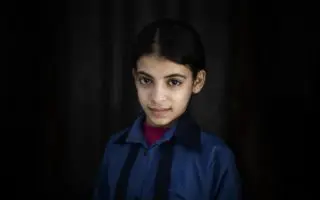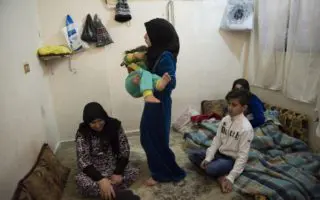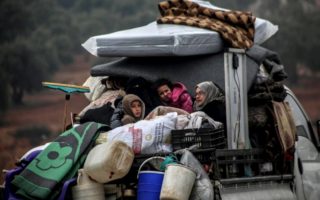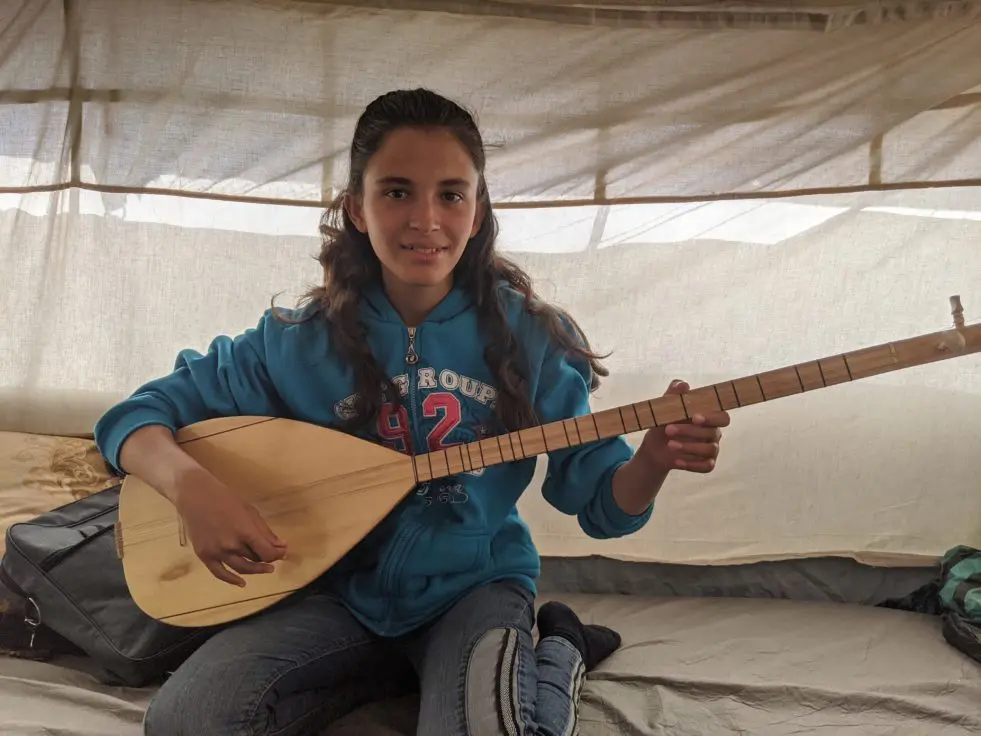
Naleen’s tanbur, a traditional stringed instrument, is one of the only things she was able to carry with her when she escaped. © UNHCR/Firas Al Khateeb
Naleen strums her tanbur, a traditional stringed instrument, with grace and confidence. It’s like an extension of her, bringing her own story into the world through the music she’s playing.
For 15-year-old Naleen, art reflects reality: her tanbur was one of the only things she was able to bring when she fled Syria less than six months ago. Today, she lives with her mother in Iraq’s Bardarash Refugee Camp.
Music connects her to the life she was forced to leave behind.
“When I was at home, I used to sing to my mother. She said, since you sing so well, why don’t you play an instrument?” she explains. “I chose the tanbur because it is Kurdish, and it is loved in my hometown of Qamishly. I used to attend music course, and then I would practice at home.”
Suddenly, last October, those melodies were interrupted by the cacophony of conflict.
“When the shelling started, the sounds were scary and very loud,” Naleen says. “It lasted from 5 PM until the early morning. We were not able to sleep, because we thought the next time it might hit us.”
As soon as there was a moment of calm, Soleen and her mother escaped to her uncle’s house in a nearby village. Still feeling unsafe, they hurried toward the border with Iraq and crossed over.
“When we arrived, I was very scared – every moment I thought I might be shot at,” she explains. “On the contrary, when we arrived we felt safe. We were well received [and taken] to the reception centre. We stayed the night and the next day we left for the camp.”
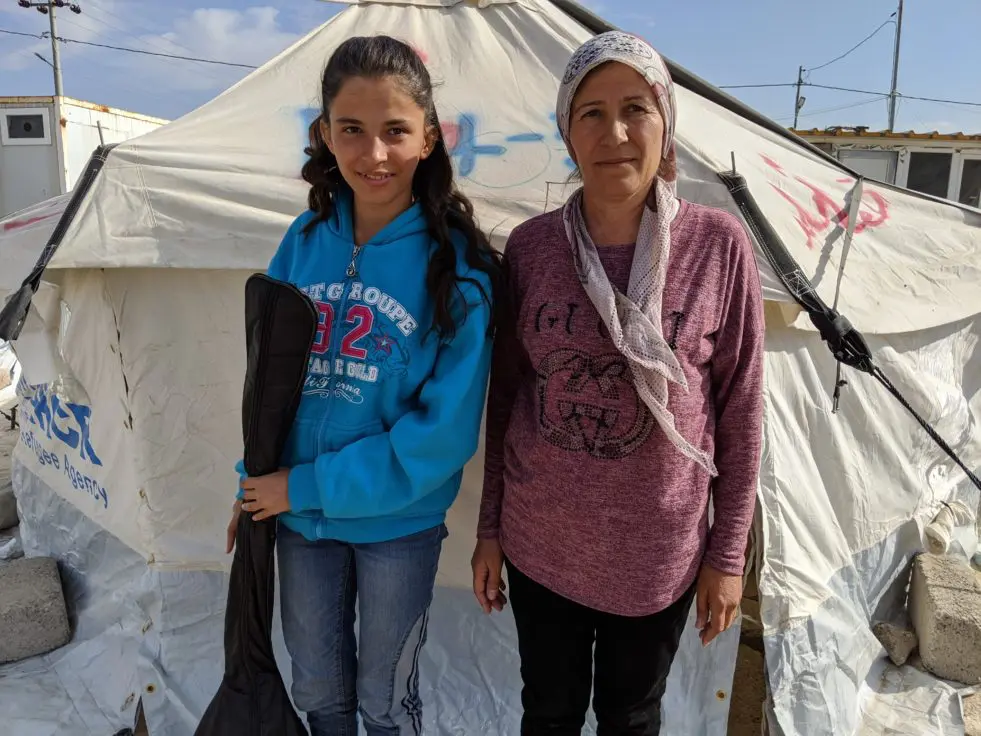
Naleen, a 15-year-old Syrian refugee, with her mother. © UNHCR/Firas Al-Khateeb
Naleen and her mother are two of more than 21,000 Syrian refugees who sought safety in Iraq. UNHCR and its partners have welcomed them with shelter, food, health care, blankets, warm clothes and other urgent assistance.
But a tent is not home, and Soleen misses her own room and other familiar surroundings every day.
“Our home was made from hardened clay; it consisted of two rooms and a kitchen, and we had some trees in the garden, as well as olives and grapes,” she reminisces.
Across the region, approximately 70% of Syrians in need are women and children. After nine long years of conflict, children like Soleen feel like their lives are indefinitely on hold.
“I miss school and the English learning centre,” she says. “If it wasn’t for this war, I would have progressed by now and practiced more.”
Her tanbur is a musical bridge between the life she had to leave and the future she wants to achieve. She knows a song that is heartbreakingly fitting for her current dilemma.
“I like this song, which talks about a little girl,” Naleen explains. “It says that children came to this world to be happy and to play, not to die in a war.
“My message to the world, to all the countries of the world, is to bring an end to the war in Syria,” she continues. “Living through war makes them depressed. For children, playing at times of war is very different from playing when there is peace.”



